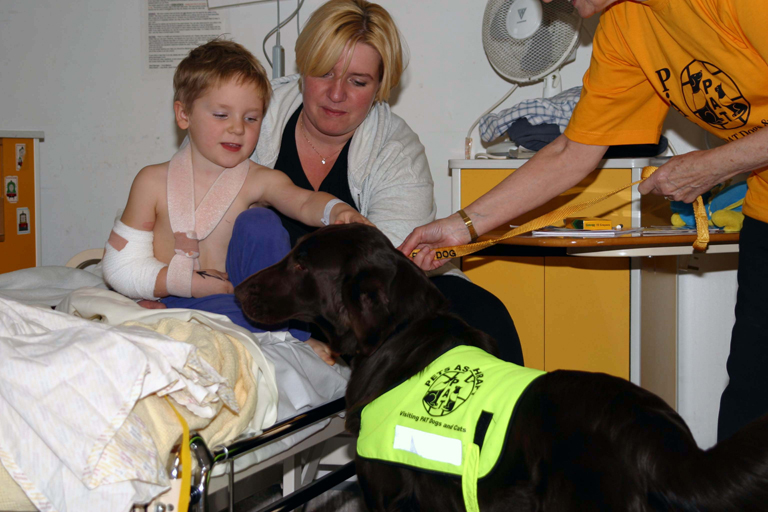There is no doubt about it, dogs and cats are a very important part of our lives. They cheer us and give comfort when we are depressed, keep us healthy and active, make us laugh and generally improve our quality of life. Therefore the pain of being denied access to animals can be unbearable.

Pets As Therapy exist to bring comfort, companionship and therapy to people in hospitals, hospices, residential/nursing homes, day care centres, special needs schools and many other establishments. P.A.T. dogs and P.A.T. cats are often also found on ‘Stroke’ units helping people to move their limbs again, or with people who are clinically depressed. Very often people suffering from depression become lonely and withdrawn and sometimes cease to communicate with other people altogether. It has been found that P.A.T. dogs and P.A.T. cats can very often get through the barrier erected by these people when human contact has failed. This is often the first step to recovery. The READ 2 DOGS programme is also benefiting many school children who are reluctant readers. Lots of Pets As Therapy animals are working through Clinical Psychologists, with children who suffer from animal phobias, helping them to live a normal life in the community.
Nigel Trevarrow, a clinical Psychologist treating children suffering from debilitating phobias said “Pets As Therapy have improved the psychological and emotional well-being of all the children that they have worked with”.
Phil Smith, a client who met a P.A.T. dog whilst in long term rehabilitation after an horrific car crash said “P.A.T. dog Sweep gave me back my life – he taught me to live again”.
Over 5,000 P.A.T. dogs and 100 P.A.T. cats are at present visiting throughout the U.K. and over 150,000 patients every single week benefit from the service provided by Pets As Therapy. P.A.T. dogs and P.A.T. cats all undergo a temperament test, which is carried out by a Pets As Therapy trained Assessor or Veterinary surgeon.
If you would like further information about Pets As Therapy check out the website www.petsastherapy.org or for further information telephone 01844 345 445.
Article by Maureen Hennis on behalf of Pets as Therapy.
